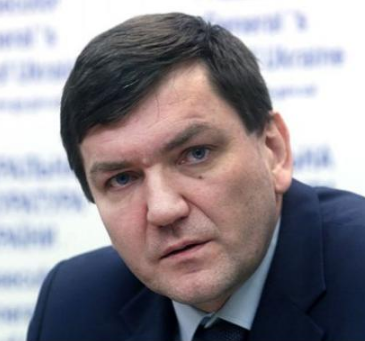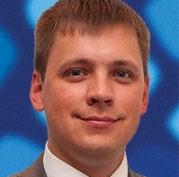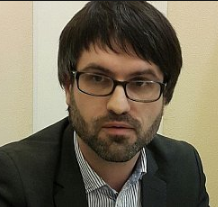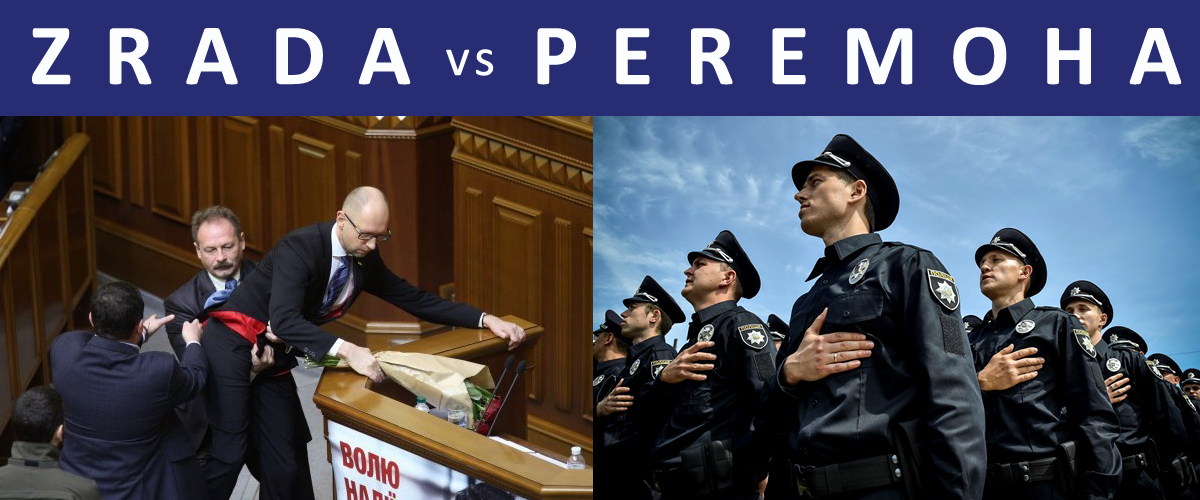It is now four years after the tragic culmination of the Euromaidan Revolution. During 18-21 February 2014, dozens of protesters who later received the title “The Heaven’s Hundred” laid down their lives fighting for freedom and dignity against the dictatorship regime of Viktor Yanukovych. Afterwards, Ukrainians faced the occupation of Crimea and war in Donbas. However, the revolution also led to positive transformations, among them - a boost to civil society, launch of reforms and turning away from a pro-Russian direction. Still, not all the reforms go on as was hoped, in particular - the transformations in the judiciary. And the case of the investigation of the killings at Euromaidan reveal the drawbacks of the reform.

This is by far not the result which Ukrainian society expected.
Also, there are reasons to suspect this information isn’t true. On the eve of the fourth anniversary of the tragic events, the NGO “Family of the Heroes of the Heavenly Hundred” released an appeal to the President Petro Poroshenko.
“The General Prosecutor has repeatedly stated that investigations of the key cases of Maidan are completed. Such statements raise big concerns. Unfortunately, they don’t correspond to reality. The majority of the cases are at the initial stage. Only a part has reached the courts,” says the statement.
The appeal raises other important questions:
- The promises that the judges who falsified accusations against Maidan activists will sit in prisons are not fulfilled;
- Three judges who gave fabricated sentences against activists from Euromaidan’s “cavalry,” Automaidan, are now appointed for a lifetime.
- Only 10% of judges who made political decisions against Euromaidan activists in favor of the regime are dismissed. Not one has been brought to criminal responsibility.
- Many judges of the Supreme Court have been appointed despite evidence to their corrupt practices and dishonesty, which shows that one of the major demands of society - the renewal of the judicial system - has not been met.
Read also: Civic watchdog in Ukraine: we were used to legitimize dishonest Supreme Court appointments
How did the judicial reform affect the investigation?

Trials in absentia. In February 2018, an important decision regarding the case of Maidan shootings was made. Pechersk District Court of Kyiv allowed trials in absentia in the case of killings at Maidan on 18-20 February 2014 against the runaway president Viktor Yanukovych. The ex-president is charged with organizing premeditated murders.
Also, the court granted a petition of the Prosecutor General Office on a special investigation (in absentia) regarding the ex-head of the Security Services of Ukraine (SBU) Oleksandr Yakymenko and the SBU ex-deputy head Volodymyr Totskyi. Similar petitions are to be considered regarding ex-Ministry of Internal Affairs Vitaliy Zakharchenko, his deputy Viktor Ratushniak, and ex-deputy head of Kyiv Police Petro Fedorchuk.

Roman Tytykalo, a lawyer of the relatives of the heroes of the Heavenly Hundred, says that the court decision is not a breakthrough for the investigation, but just another step from the overall number of steps of the investigation to bring the perpetrators to justice. He emphasized that society expects a verdict:
“A large part of work was done under the control of the special forces and the whole investigation. Also by the victims and international experts. But today we have a prosecution which can’t clearly formulate the development of events - who gave orders, how it happened step by step, who directly participated. As a lawyer, I understand the answer to these questions, but society does not fully understand whether Yanukovych in general gave orders or he gave a tacit consent.”
This can lead to a situation that even after the procedure is completed, an international court can cancel the decision. The expert explains that if a person appears after the verdict is ready, he will have a right to appeal it - international conventions give a suspect who did not know about the process or because of objective reasons couldn’t take part in it has a right to demand the case be reconsidered from the very beginning.
Horbatiuk says that the Russian Federation prevents Ukraine from conducting investigations against the majority of top-officials:
“They even blocked us from interrogating some member of ‘Berkut’ [the special law enforcement unit which was fighting against the protesters during the deadly events - Ed] because of some questions of the ‘national security of Russian Federation'.”
Horbatiuk says that the law should be changed:
“I have an impression that somebody profits from the dubious legitimacy of these processes. So those who are being prosecuted will be able in the future to receive a chance to evade responsibility just because of procedures allowing to cancel the verdicts in courts.”
Reorganization of the judicial system. In the end of 2017, President Poroshenko launched the second stage of the judiciary reform. The changes foresaw the reorganization of district courts and courts of appeal. The changes envision liquidating a number of courts, including those in Kyiv and other large cities.
The main point for criticism of these changes is that the documents do not outline transitional provisions which would regulate the fate of existing trials. According to general rules, if existing courts are liquidated, the cases being considered there have to be redistributed. After a court is liquidated, a case which a judge of this court was considering stops being considered. The case gets automatically redistributed and is appointed a new judge who has to consider the case from the beginning, as it is required by the procedure.
This directly affects the investigation of killings at Euromaidan.
The NGO "Lawyers Advocacy Group and Family of the Heroes of the Heavenly Hundred" appealed to Poroshenko to preserve the district courts.
“Today, the courts have been actively considering more than 10 proceedings of the Maidan cases. A part of them has been considered for almost 3 years. Hundreds of victims have been interrogated, somebody already died, and terabytes of video evidences and other materials have been explored. All this 2-3 years’ volume of work will be lost in the case that the courts are liquidated. A part would not be restored. The repeated participation of victims in interrogations will additionally traumatize them by remembrance, spending their time and money to get to the court, which would not be compensated by the state,” says the appeal.
The judges. Roman Maselko, a member of the Public Integrity Council, a public body tasked with reviewing the the integrity of the judges being appointed to the renewed Supreme Court, notes that the main question is not the restructured courts, but the judges themselves. In particular he pointed out the following problems:
- the acting judges feel impunity;
- the authorities can influence them;
- nobody is punished for this influence.

The lawyers of the families of Heavenly Hundred say that according to the current legislation acting judges have a right to enter new courts of the same level bypassing the competition. A competition is envisaged only if a judge will be transferred to a court of another level. But lawyers expect that such cases will be rare.
There are risks for the judges as well.
Maselko says that signed by the president documents gave an opportunity to form courts “approved” by the authorities:
“Yes, [a judge] can be transferred to a court of the same level without competition. However, not necessarily to the same location. [He] can be sent for example from Kyiv to Mariupol. It is the High Council of Justice and and High Qualification Commission of Judges which decide on these questions. And these bodies already discredited themselves during the competition to the Supreme Court. Moreover, I already have information that heads of acting courts, first of all the courts of appeal, start to form lists of 'needed' judges.”
Read also: Commission recommends tainted judges to Ukraine’s new Supreme court, ignoring disapproval of society
Reserving the cases of Euromaidan killings and other complicated cases for the judges who had been working on them might be a solution, so if a court is liquidated the judge can consider a case at the new place. The creation of the corresponding law is discussed. However, if it appears and the judges who work on complicated cases will be granted a guarantee of employment, there will be no lustration.
Saakashvili’s testimony

The mess created by the deportation of the ex-Georgian President and ex-Odesa governor Mikheil Saakashvili also affected some aspects of the investigation of the events of 18-20 February 2014.
On 13 February 2018, Saakashvili was set to testify about the case of the so-called Georgian snipers, which were presented in an Italian film alleging they took part in shooting Euromaidan protesters. However, he was deported one day before that. Now this court session is unlikely.
The so-called Georgian snipers appear in the case of five ex-employees of the Berkut riot police who are accused in shooting Euromaidan protesters.
In November 2017, the Italian TV channel Matrix aired a 20-minute long video titled “Ukraine: the hidden truth.” It tells the story of how a journalist found two Georgian citizens who four years after Euromaidan confirmed they were recruited in the end of 2013 by Mamuki Mamulashvili, a military advisor of the Minister of Defense of Georgia and Saakashvili’s companion. They also stated they had shot at both Berkut officers and Euromaidan protesters and had obeyed the orders of some Americans, Estonians, and Ukrainian MP Serhiy Pashynskyi. Horbatiuk said that the film is a “gawky fake.” The conclusions of the expertise and investigative experiment refute the words of the “Georgian snipers” who according to the investigation had never entered Ukraine.
“[The deportation of Saakashvili] is harmful to the prosecution, because his testimony is very important. He already was interrogated after this “Italia film” appeared. And the lawyers of the ex-Berkut officers filed a petition for summoning the actors who played in the film. Saakashvili was questioned during the court hearing. He provided facts and details which totally refute the circumstances presented in the film,” said Oleksiy Donskiy, one of the prosecutors of the case.
The prosecutor also stated that the General Prosecutor’s Office issued suspicion notes regarding the killing of law enforcers during the events at Maidan to a number of people.
The fact that those responsible for the crimes committed during the Euromaidan revolution are not punished leads to the discontent of Ukrainian society with those who are in power. As well, the cases illustrate the weak points of Ukraine’s judicial reform. And the dialogue between society and the government on this question is rather absent.
Read also:
- Separating myth from reality: 6 facts on the shooting of the Euromaidan protesters
- Ukrainian Berkut police suspected of Euromaidan massacre now in Russia’s service?
- Only 1 person serving sentence for Maidan killings, says Prosecutor General’s Office


